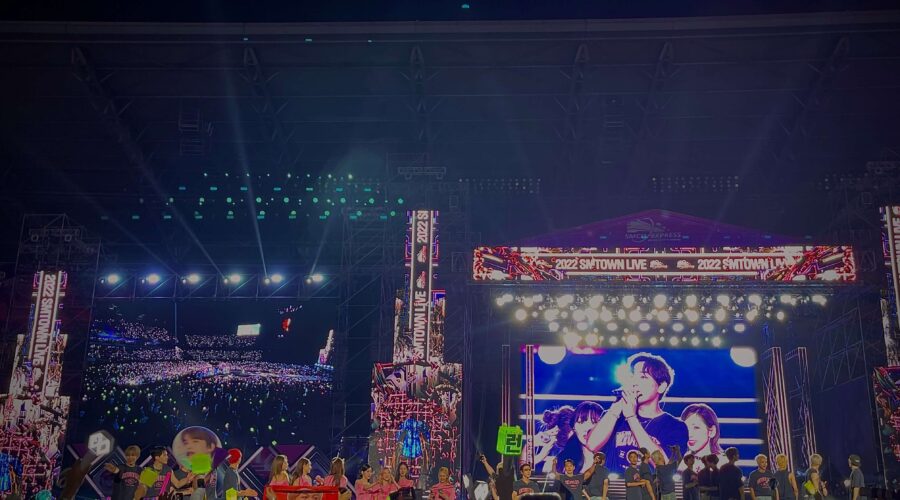Extended Proposal Call for – Vol 8 Issue 1 (Summer 2024)
Riffs Vol 8 Issue 1: Asian and Oceanic Popular Music
Editors Sharon Kong-Perring (Birmingham City University) & Mathieu Berbiguier (UCLA)
“Yet, we would argue that any consideration of the ways in which the contradictory, chaotic forces of globalisation play out in fandom should proceed not only from such contexts, but equally from our informed understanding of fan behaviours, motivations, and processes of meaning-making as driven by affective pleasures and investments.”
(Morimoto and Chin 2013: 98 – emphasis ours)
Although Lori Morimoto and Bertha Chin’s observations on the importance of fan narrative and authenticity are a decade old, there are plenty of narratives and narrative mechanisms that have been left at the periphery or held conditional to and foiled against their relevance to Global North media flows. One such music and mediascape where this assertion remains true is Asian popular music.
Asian pop music has experienced a spectacular rise in markets globally and outside of the Asian continent, yet its popularity and relevance in academia, content creation, media, and editorial pieces are often still narrowly defined within a prevailing narrative: Asian popular music’s “mainstream” ideation has been contingent upon the Global North’s acknowledgment of Asian music as something that is popular. In continuing to entrench this hegemonic narrative, existing power structures that cast Global North music and media as arbiters of what is popular ignore narratives which place these Global South sounds/songs/compositions/cultures at the centre. In the same way “Squid Games” actor Lee Jung-jae was asked by an American reporter “what was the biggest change” in his life now that he was famous – the reporter unaware of his incredible stardom in Asia for two decades, the Global North treats the Global South as part of the periphery working inward, rather than at the centre of its own story.
For this special issue of Riffs, we invite abstracts that explore narrative, in all of its potential meanings, with Asian and Oceanic popular music placed at its core, rather than solely dependent on its intersections with “the west”. We welcome pieces that introduce, explore, and negotiate through research done on all geographic locations in Asia and the Pacific Islands, and are interested in submissions that are related to or contain (but are not limited to):
- Autoethnography/reflexive analysis of identity;
- The creation and contribution of/toward fan archives or fan canons;
- Embodiment/phenomenological approaches to studying Asian/Oceanic popular music and/or affect from Asian/Oceanic popular music;
- Diversified audience/reception studies/fandom studies frameworks;
- Practice/composition/choreography of Asian/Oceanic popular music;
- Celebrity studies in Asia and Oceania;
- Debates concerning authenticity in Asian and Oceanic popular music;
- Ethnomusicology in Asia and Oceania;
- Decentralization of Global North media flows and academic engagement.
This special issue of Riffs, therefore, aims to give a space for researchers and practitioners to investigate how we approach Asian and Oceanic popular music as an object/subject of study by introducing and exploring the legitimacy of narratives that begin in the Global South and are critical of existing media flows and power structures.
We welcome all creative responses to this prompt, from all individuals and collectives, from any sector or discipline and any career stage. Feel free to include written, visual, and/or musical elements and to propose work that emerges from collaborations between writers, poets, musicians, composers, and visual artists (etc).
Proposal Deadline
Please submit a 300-word abstract/summary to riffsjournal@gmail.com by 15th October 2023 to include a title and 300-word abstract/summary, your name(s), a short bio, and contact email.
Full submissions (2000-4000 words / visuals or mixed text/image to not exceed 8 A4 pages) are expected by late early March 2024. All visual and audio content must have a Creative Commons License, be owned by the contributor, or have full owner permissions. All proposals submitted to Riffs will be considered by the Issue Editors and the Editorial Board.
Further information
All invited full papers are subject to double blind review and, once accepted, will be published online (Open Access) and in limited edition print. This issue will be published in July 2024 with assigned DOIs. Authors must follow the Riffs submission guidelines here.
As the journal title suggests, we are particularly interested in pieces that take an experimental approach to the consideration of popular music and disrupt dominant expectations, hierarchies, and power dynamics in research approaches and writing forms. For examples of pieces based on previous prompts, have a look through our current and past issues, available to download from our website – www.riffsjournal.org
Please note: Riffs shall be entitled to first use of the contribution in all the journal’s different forms, but the author remains the copyright owner and can re-publish their contribution without seeking the journal’s permission. Riffs reserve the right to decline to publish contributions if they are submitted after the agreed deadline and without the assigned editor being informed (and agreeing to) a new submission date.
Image caption: Final moments of SM Town Live 2022: SMCU Express. Taken on August 20, 2022, at Suwon World Cup Stadium, South Korea
Image credit: Mathieu Berbiguier


Leave a Reply